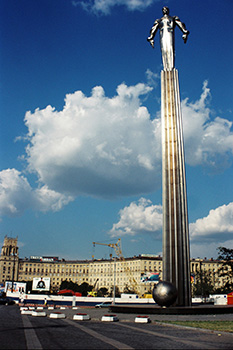

It is a valuable addition to the literature. That cybernetics enjoyed more success institutionally on the other side of the Iron Curtain is well known, but Slava Gerovitch’s book is the first to tell us at any length about how that occurred, covering the decades from the 1950s to the 1970s. By Andrew Pickering The growing interest in the history of cybernetics has so far largely focused on its early days in the US, the 1940s and 1950s: Norbert Wiener, Claude Shannon, Warren McCulloch, the Macy conferences. REVIEWS Slava Gerovitch, From Newspeak to Cyberspeak: A History of Soviet Cybernetics. Gerovitch argues that this was not the result of any centrally

This despite the fact that a plausible ancestry for cybernetics could readily be constructed from the work of Soviet scientists and mathematicians, and that almost nothing about cybernetics was then known in the Soviet Union.

In the early 1950s, towards the end of the Stalinist era, cybernetics was trashed as “An American Pseudo-Science” and “cyberneticians were branded ‘semanticist-cannibals’ ” (p. Gerovitch distinguishes three phases in the history of Soviet cyber- netics. The Rise of Cybernewspeak The Rise of Cybernewspeak


 0 kommentar(er)
0 kommentar(er)
